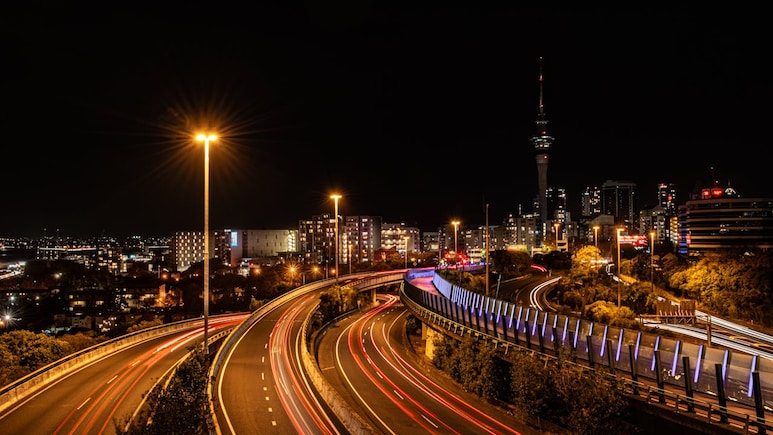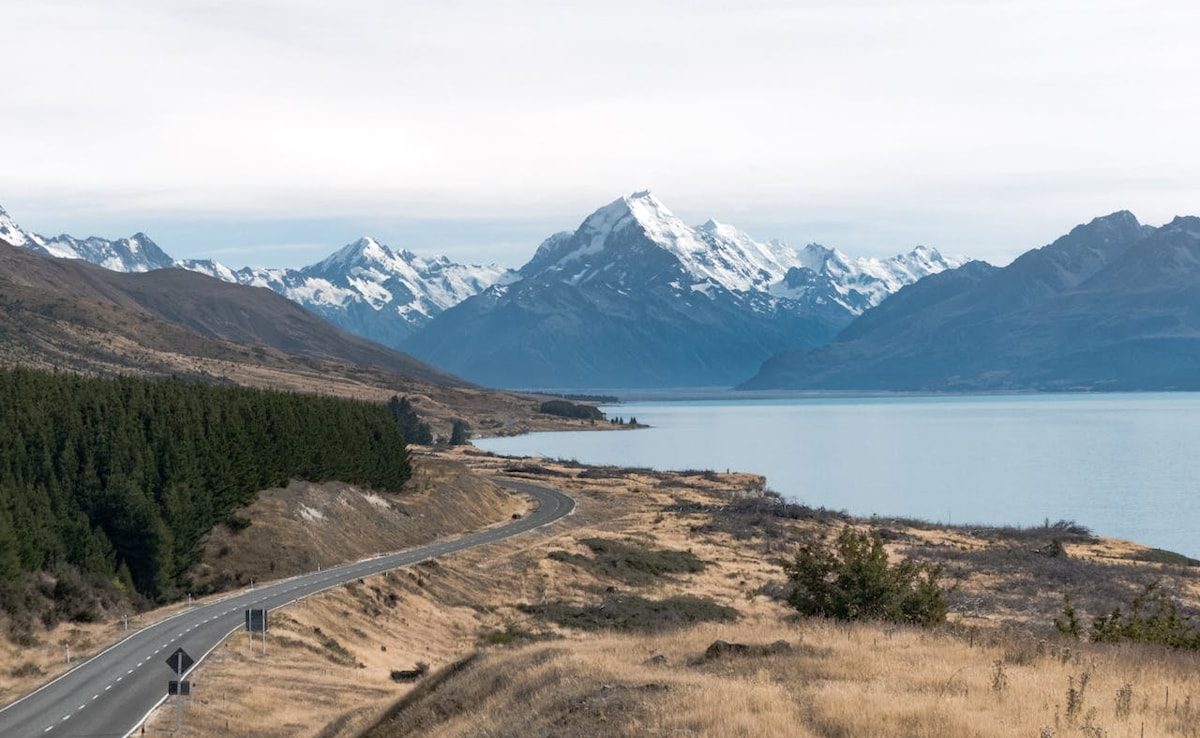
- Resident Visa allows indefinite stay with travel limits; PRV offers unlimited travel rights
- PRV requires two years on Resident Visa plus proof of commitment to New Zealand
- Resident Visa applicants include skilled workers, family sponsors, investors, and entrepreneurs
Thinking of making New Zealand your forever home? Whether you are aiming to build a career, raise a family, or live in one of the world's most scenic and safe countries, this guide is your essential starting point. Tailored for Indian applicants, it takes you through both key phases of settling in, beginning with the Resident Visa (your entry into long-term living). You can then progress to the Permanent Resident Visa (PRV), which grants full freedom to travel. From understanding benefits to meeting eligibility, collecting documents, fees, timelines, and sharing smart tips, this clear step-by-step guide is designed to make your move smooth and confident.
Benefits Of New Zealand Resident Visa & PRV
- Live, work, and study in New Zealand indefinitely.
- Access public healthcare, subsidised education, and social services.
- Vote and sponsor family members.
- Resident Visa: includes limited travel rights.
- PRV: grants unlimited travel privileges and full residency stability.
Difference Between Resident Visa and Permanent Resident Visa
Resident Visa: grants indefinite stay but with travel conditions; you must re-enter New Zealand by a specified date.
Permanent Resident Visa (PRV): removes all travel restrictions; you can leave and return as you please with no expiry or conditions.
The PRV is available only after two years on a Resident Visa, provided visa conditions have been met and you have demonstrated a real commitment to New Zealand.
Also Read: UK Is Giving PR Visa To Indians: Here's How Much It Will Cost You
Who Can Apply For NZ Resident Visa And PR Visa
Resident Visa:
- Skilled individuals via the Skilled Migrant Category.
- Workers in Green List roles using Straight-to-Residence or Work-to-Residence paths.
- Family sponsors, investors, entrepreneurs, and parent categories.
PRV: Eligible if you:
- Have held a Resident Visa for at least two consecutive years.
- Your visa is still valid, or expired no more than 90 days ago.
- Have met all conditions tied to that visa.
- Show clear commitment to living in New Zealand (through time spent in-country, tax residency, business or investment, or establishing a lasting base).
- Are of good character and can include applicable family members.
Application Process For New Zealand Resident Visa
- Choose the appropriate pathway: Skilled Migrant, Straight-to-Residence, Work-to-Residence, Family, Investor, etc.
- For skilled routes, submit an Expression of Interest (EOI) and wait for an invitation to apply.
- Those using Straight-to-Residence or similar paths apply directly once eligible.
- Complete medical and police checks as required and submit your application online.
Application Process For New Zealand PRV
1. Ensure you have held a Resident Visa for two years and complied with all conditions.
2. Gather documentation proving your visa status and commitment to New Zealand.
3. Apply online for PRV, including family members if applicable.
4. Pay the fee, submit, and wait for your eVisa approval.

Basic Document Checklist For New Zealand Resident Visa & PRV
Resident Visa:
- Passport, photos, identity documents.
- Qualifications, job offers or EOI evidence.
- Health and character checks, and English test results (if applicable).
PRV:
- Passport and travel documents.
- Proof of Resident Visa tenure and condition compliance.
- Evidence of commitment (travel logs, tax records, business/investment ties).
- Character checks if asked.
Also Read: Indians Can Get Singapore PR For About Rs 15,000. Here's How To Apply
Total Cost To Secure New Zealand PR
PRV: Application cost is NZD 315 (approx Rs 16,400) per applicant, once eligibility is established by holding a Resident Visa for at least two years and satisfying all required conditions.
Resident Visa: Costs vary by pathway. Here is a summary of New Zealand Resident Visa costs by route:
- Skilled Migrant / Green List: Rs 3.8 lakh - Rs 6.5 lakh
- Family Pathways: Rs 3 lakh - Rs 3.4 lakh
- Investor / Business: Rs 6 lakh - Rs 25 lakh (depending on complexity)
- Transition Visa: Rs 1.35 lakh - Rs 1.5 lakh
(These calculations include application fees, medical examination, police certificate, possible English test fees, etc.)
Cost Breakdown For Indians Applying For New Zealand PR
Applying for PR is not just about forms and waiting; it is also about budgeting smartly. For Indians, here is what the costs typically look like:
- Application Fee: Around NZD 6450 (Rs 3.35 lakh approx) for a Skilled Migrant Category Resident Visa. Other categories may vary, so always check before you apply.
- Medical Examination: Conducted at New Zealand-approved clinics in India, usually costing Rs 7,000-Rs 12,000 per person, depending on the tests required.
- Police Clearance Certificate (PCC) - Issued by the Indian Passport Seva Kendra at Rs 500.
- Language Tests - IELTS or PTE exams are required unless exempt. IELTS Academic or General Training costs around Rs 16,250 in India.
- Document Certification & Translations (if any) - Budget another Rs 5,000-Rs 15,000 depending on the number of documents.
- International Qualification Assessment (IQA) - If needed, costs around NZD 700-1,000 (Rs 36,000-Rs 50,000) per credential.
- Proof of Funds - It is advisable to maintain around Rs 3-5 lakh to demonstrate financial stability, among other proofs. But there is no mandatory amount that has been formally specified.
Note: In addition to these, you will also need to budget for flight tickets, initial settlement (rent deposit, household items), and ongoing expenses until you start earning. That can easily add another Rs 3-5 lakh, depending on your city and lifestyle.
Processing Time For Resident Visa & PRV
- Resident Visas: Processing varies; skilled and work-linked paths can take anywhere from a few weeks to several months.
- PRV: Moves quickly; most decisions are made within two to four weeks.
Living In New Zealand As A Resident Or PRV Holder
- Enjoy long-term stability, social services, and community support.
- PRV holders benefit from unrestricted travel and full residency confidence.
- After sufficient residence, you will be eligible to apply for citizenship, completing your long-term settlement.
PR To Citizenship Pathway For Indians
Getting a Permanent Resident Visa is a big milestone, but for many Indians, the real finish line is New Zealand citizenship. So how does the journey unfold after PR?
- Residency Requirement - You must have lived in New Zealand for at least 5 years as a resident before you can apply for citizenship. This includes time spent on both Resident and Permanent Resident Visas.
- Physical Presence Rule - Out of those 5 years, you need to have been physically present in New Zealand for at least 240 days in each year and 1,350 days in total.
- Good Character Check - Authorities will review your background, including criminal records or any immigration breaches.
- English Language - A basic understanding of English is expected, enough to handle daily life and community interactions.
- Commitment to New Zealand - You should show genuine ties, such as family, work, business, or community involvement.
- Application Fee - Around NZD 470 (Rs 24,000 approximately) for adults. Children under 16 have lower fees.
Once approved, you will attend a citizenship ceremony, where you take the oath of allegiance and officially become a Kiwi. That unlocks the passport, the right to stand in elections, and full access to everything New Zealand offers its citizens.
Think of PR as getting the keys to the house, but citizenship is when you officially own it.
New Zealand offers a clear two-step journey to permanent settlement. Begin with a Resident Visa to establish your place, then confidently upgrade to a Permanent Resident Visa for full travel freedom and stability. With careful planning, cost management, and timely applications, you will be well on your way to making New Zealand your forever home.
Track Latest News Live on NDTV.com and get news updates from India and around the world

